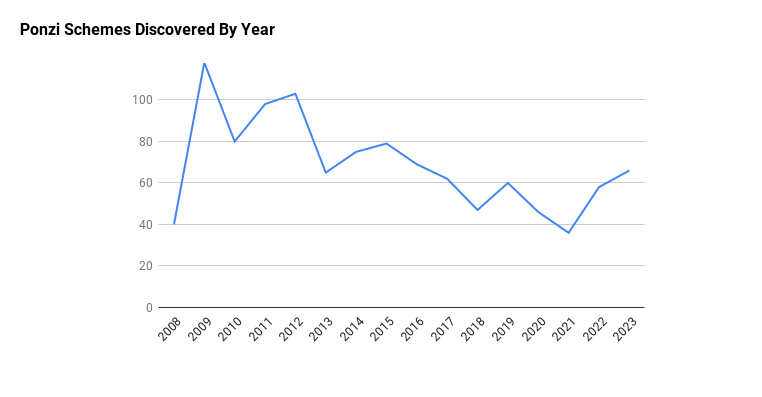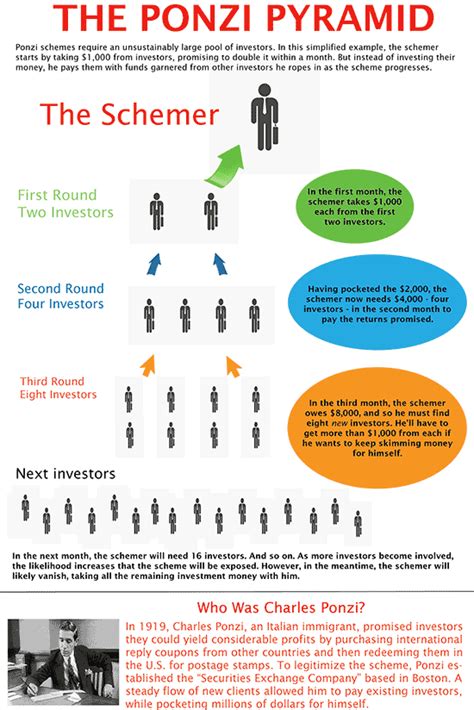NC Man Sentenced to 19 Years in Prison: When you hear the phrase “Ponzi scheme,” you probably think of flashy Wall Street hustlers like Bernie Madoff, who stole billions. But these scams don’t just happen in New York or Hollywood movies. They can happen in your own backyard — and recently, they did. In North Carolina, William Lamar Rhew III of Summerfield pulled off one of the biggest financial frauds in state history. He conned 117 investors out of $24 million, spent the money on luxury toys, and left families devastated. Now, after years of deception, Rhew has been sentenced to 19 years in federal prison. This case is not just another crime headline — it’s a lesson for all of us about trust, money, and the importance of being skeptical when investing.
NC Man Sentenced to 19 Years in Prison
The case of William Lamar Rhew III, sentenced to 19 years for running a $24 million Ponzi scheme in North Carolina, reminds us that fraud isn’t just a Wall Street problem. It can happen in your hometown, through someone you know, and it can devastate lives. The key takeaway: be cautious, ask questions, verify information, and never ignore your gut feeling. Whether you’re investing $500 or $50,000, knowledge is your best defense.

| Detail | Description |
|---|---|
| Name | William Lamar Rhew III |
| Location | Summerfield, NC |
| Crime | Ponzi Scheme + Tax Fraud |
| Victims | At least 117 investors |
| Amount Stolen | $24 million (2017–2023) |
| Sentence | 19 years in federal prison |
| Restitution Ordered | $14.8M to investors, $3.06M to IRS |
| Historical Context | Ponzi schemes date back to Charles Ponzi in the 1920s |
| Official Source | U.S. Department of Justice |
How the Ponzi Scheme Worked?
Rhew launched his company, Chadley Capital, LLC, in 2017, promising investors safe, high-return opportunities. His pitch? He said he was buying accounts receivable (unpaid business invoices) at a discount and reselling them for a profit. On paper, this looked legitimate — and to people desperate for steady returns, it sounded like a sure bet.
But the truth was very different. Instead of actually investing in receivables, Rhew:
- Paid old investors with money from new ones.
- Used fresh cash to buy himself a boat, sports cars, luxury trips, and even a beach house.
- Hid money from the IRS and failed to file taxes.
The setup was classic: pay off early investors so they brag about their “profits,” attract more people, then repeat. It worked for six years, until investigators unraveled the fraud in late 2023.

Timeline of Events
- 2017 – Chadley Capital launched. Early investors saw small payouts, which helped spread word-of-mouth credibility.
- 2018–2019 – Dozens of new investors joined in, often through referrals. The scheme grew rapidly.
- 2020 – During COVID-19, when many people worried about financial security, Rhew claimed his investments were “safe despite the pandemic,” drawing in even more victims.
- 2021–2022 – He lived lavishly: expensive cars, luxury trips, and a beach property.
- 2023 – Investors started asking questions. The numbers didn’t add up, and the scheme began to crumble. Federal authorities stepped in.
- 2025 – In May, Rhew pleaded guilty to fraud and tax evasion. In August, he was sentenced to 19 years in prison.
Why People Fall for Ponzi Schemes?
It’s easy to think, “I’d never fall for that.” But scams work because they exploit human psychology.
- Trust Factor – Rhew wasn’t an outsider. He was local, familiar, and part of the community. People trust who they know.
- Too-Good-to-Be-True Returns – He promised steady, safe profits at a time when real markets were volatile. That’s attractive, especially to retirees.
- Word of Mouth – Many victims heard about the opportunity through family or friends, making it seem more trustworthy.
- Authority Illusion – He acted like a financial expert, using jargon and fake professionalism.
This is why even smart, educated professionals get fooled. Remember, Bernie Madoff scammed big banks and hedge funds — not just ordinary folks.

The Human Cost
At least 117 people lost money. Some of the stories are heartbreaking:
- A retired couple invested their entire retirement nest egg and now face financial insecurity in their golden years.
- Parents lost the college savings they had carefully built for their children.
- A small business owner invested capital meant to expand operations — only to see it vanish.
As one victim told local news, they felt “betrayed by someone they trusted like family.” That’s the most damaging part of fraud — not just the lost dollars, but the broken trust.
Historical Context: Ponzi Schemes Then and Now
The term “Ponzi scheme” comes from Charles Ponzi, who in the 1920s promised huge profits from trading international postage stamps. He wasn’t really trading — he was recycling money between investors.
Since then, Ponzi schemes have evolved but stayed fundamentally the same. The biggest case ever was Bernie Madoff, who stole an estimated $65 billion before his arrest in 2008.
According to the SEC, Americans still lose billions of dollars each year to Ponzi schemes and similar investment frauds. The FTC’s Consumer Sentinel Network reported over 96,000 investment scam complaints in 2023 alone, with total losses exceeding $3.8 billion.
Rhew’s $24 million scheme is smaller but still one of the most significant cases in North Carolina’s history.

The Tricks Scammers Use
Fraudsters like Rhew rely on several common strategies:
- Exclusivity: “This is a special opportunity, not everyone can get in.”
- Pressure: “You have to act now before it’s gone.”
- Fake Track Records: Showing fabricated financial statements.
- Affinity Fraud: Targeting people through shared religion, ethnicity, or community ties.
Understanding these tactics makes it easier to spot and avoid them.
NC Man Sentenced to 19 Years in Prison: Warning Signs of a Ponzi Scheme
Be on the lookout for these red flags:
- Promises of guaranteed returns.
- Vague explanations of how profits are made.
- Lack of independent auditing.
- Difficulty withdrawing your money.
- Leaders living lavish lifestyles without clear income sources.
If you see these signs, walk away and report it.
Practical Advice: Protecting Yourself
To keep yourself safe from becoming the next victim:
- Verify Credentials – Check advisers through FINRA BrokerCheck or the SEC’s Investment Adviser Search.
- Ask Hard Questions – If the answers are vague or evasive, that’s a bad sign.
- Diversify – Don’t put all your money into one deal. Spread investments around.
- Demand Transparency – Legit investments will provide detailed statements and third-party verification.
- Research Independently – Google the person’s name along with “fraud” or “lawsuit.” You may find red flags others missed.
- Trust Your Gut – If something feels too good to be true, it usually is.
Nationwide Ponzi Scheme Statistics
- Average Ponzi schemes last 4–6 years before collapsing — Rhew’s lasted 6.
- In 2023, at least 40 new Ponzi schemes were uncovered nationwide.
- Victims are often everyday people — retirees, church groups, and small business owners — not just Wall Street insiders.
- The median loss per investor in Ponzi cases is estimated at $250,000.
Shocking Demand – Should Tax Crimes Lead to Citizenship Denaturalization?
Big Tax Bill Update – Child Tax Credit Changes Every Family Should Know About
Indian-Origin US Doctor Jailed 34 Months for $700K Tax Evasion and Medical Fraud






